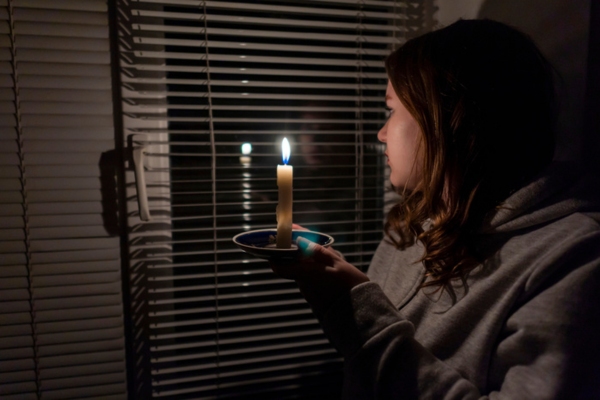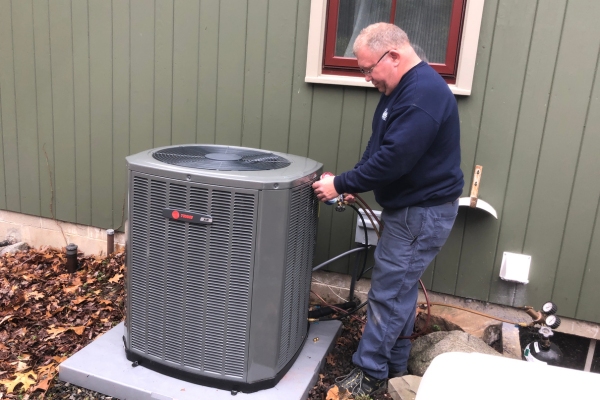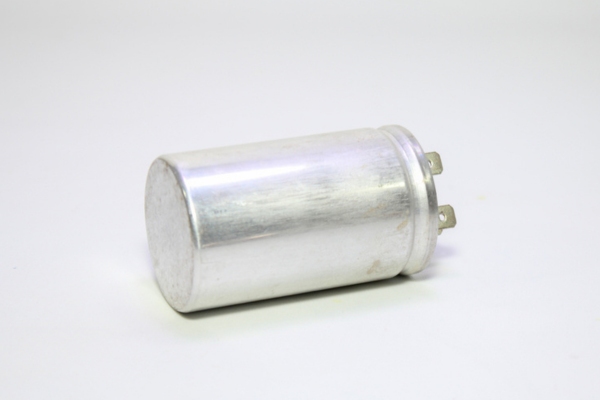Contents
- 1 Does Your System Have HVAC Surge Protection?
- 2 HVAC Components Vulnerable to Power Surges
- 3 Preventing Power Surge Damage to Your HVAC System
- 4 Warranty and Insurance Considerations for HVAC Surge Damage
- 5 FAQ: Safeguarding Your HVAC System Against Power Surges
- 5.1 What Is a Power Surge and How Does It Affect My HVAC System?
- 5.2 How Can I Protect My HVAC System from Power Surges?
- 5.3 Why Are HVAC Control Boards Vulnerable to Power Surges?
- 5.4 What Should I Do During a Power Outage to Protect My HVAC System?
- 5.5 Will My HVAC Warranty Cover Damage from Power Surges?
- 6 Conclusion
- 7 Call Wilcox Energy For All Of Your HVAC Needs
HVAC systems are pivotal in maintaining the comfort and safety of modern buildings. Yet, without proper HVAC surge protection, they face risks from power surges that can result in significant damage and operational disruptions.
These surges typically arise from lightning strikes, power outages, or fluctuations within the electrical grid. When a surge occurs, an abrupt increase in electrical current can flow through the HVAC system, jeopardizing vital components like the compressor, fan motor, and control board. The resulting damage can be costly and may even require a complete system replacement.
Ensuring that HVAC units are safeguarded against power surges is essential. This involves strategically using surge protectors and adherence to electrical safety protocols to minimize risks and maintain system integrity. Keep reading this Wilcox Energy article to learn more about HVAC surge protection.
Does Your System Have HVAC Surge Protection?
If you find yourself pondering this question, your HVAC system may still be vulnerable to power surges. To protect your system from these unpredictable events, consult a skilled HVAC technician from Wilcox Energy. They will offer tailored advice and solutions to enhance your system’s resilience to power surges and unexpected power failures.
Understanding Power Surges

A power surge occurs when an unexpected spike in electrical voltage surpasses the standard levels within a power supply system. Such surges often result from abrupt electricity flow disruptions caused by lightning strikes or power outages. Additionally, the activation or deactivation of large electrical appliances, including air conditioners, refrigerators, or elevators, can trigger these voltage spikes.
Although a power surge may last only a brief moment, typically just a fraction of a second, its effects can be devastating. The surge of excess electrical energy can overload and harm the delicate electronic components within devices and appliances. This damage can cause them to malfunction or, in severe cases, lead to complete failure.
Protect your HVAC system with Wilcox Energy’s comprehensive maintenance services. Call us today!
Differentiating Power Surges, Power Outages, and Brownouts

Power surges, power outages, and brownouts all stem from issues within the electrical power supply, yet they each describe distinct phenomena. Here’s a concise overview:
- Power Surge: This refers to a rapid and transient spike in electrical voltage, usually enduring merely a fraction of a second. Triggered by lightning strikes, power outages, or the activation of high-powered electrical machinery, power surges can damage electronic devices and appliances. Using surge protectors is commonly advised.
- Power Outage: This event occurs when the electrical power supply to a specific building or region is interrupted, leading to a total loss of power. Various factors, such as severe weather conditions, equipment failures, or planned maintenance activities, can trigger power outages.
- Brownout: This occurs when voltage is reduced within the electrical power supply system. The effects of a brownout are typically noticeable, such as dimming or flickering lights and reduced power to appliances. Causes of brownouts include excessive demand on the power grid, equipment malfunctions, or issues within a building’s or area’s electrical system.
Keep your home comfortable year-round with Wilcox Energy’s professional HVAC solutions. Contact our team today!
HVAC Components Vulnerable to Power Surges
Power surges can compromise several critical components of an HVAC system, potentially leading to significant functionality issues and repair costs.
HVAC Control Board
Often referred to as the “brain” of the HVAC system, the control board is crucial for proper function but vulnerable to damage from power surges. A compromised control board disrupts communication with the thermostat, leading to malfunctions in heating or cooling. This can significantly impact comfort levels, particularly during periods of extreme temperatures.
HVAC Compressor Motor

The compressor motor in your HVAC system, identifiable as a box from which wires protrude, plays a pivotal role by compressing low-pressure, cool refrigerant into a high-pressure, hot state.
This motor, the heart of the compressor, is particularly prone to damage from power surges. It consists of numerous wires that transform electrical energy into kinetic energy. A surge can cause these wires to overheat and potentially combust. If the motor is damaged, it will not function properly, causing a failure in the compressor’s overall operation.
HVAC Relay Switch
The relay switch in your HVAC system activates or deactivates certain high-voltage components. Typically, this switch includes an electrical contactor surrounded by a coil. Should the voltage exceed specific levels, the coil is prone to burning out, leading to a broken circuit and causing the relay switch to malfunction.
HVAC Capacitor

The capacitor, an essential oval-shaped component within your HVAC system, stores the electrical charge to power various electrical components. If exposed to a power surge, the capacitor may sustain damage, potentially disrupting the smooth operation of your HVAC system and causing performance issues.
Need HVAC repairs or installation? Contact Wilcox Energy for fast and reliable service.
Preventing Power Surge Damage to Your HVAC System
Power surges can inflict significant damage on HVAC systems, potentially leading to expensive repairs or the need for complete replacements. Here are several strategies to help protect your system from power surge damage:
- Install HVAC Surge Protectors: Utilizing surge protectors effectively shields your HVAC system from the abrupt spikes caused by power surges. These protectors can be fitted directly on your HVAC unit and electrical panels, offering a robust defense against electrical surges.
- Unplug Appliances During Storms: It is wise to disconnect your HVAC system and other major appliances to minimize the risk of damage from power surges or lightning strikes during severe weather.
- Use High-Quality Wiring: High-quality wiring and components significantly reduce the likelihood of power surges damaging your HVAC system. Hiring a professional electrician to conduct the installation is crucial to ensure that the wiring and components are set up correctly and safely.
- Maintain Your HVAC System: Regular maintenance is vital to preventing surge-related damage. This includes routinely cleaning or replacing air filters, monitoring refrigerant levels, and examining electrical connections to ensure they are secure and in good condition.
- Consider a Whole-House Surge Protector: A whole-house surge protector is an excellent investment for extensive protection. Installed at your home’s main electrical panel, this device guards all your appliances, including the HVAC system, against power surges. It provides a blanket of security that helps keep your entire electrical infrastructure safe.
Warranty and Insurance Considerations for HVAC Surge Damage
It’s important to note that the warranties provided by HVAC manufacturers typically exclude coverage for damage caused by power surges. While homeowners’ insurance may offer some recourse, proving claims for surge damage can be difficult, especially since the damage can accumulate over time. Consequently, you might find yourself responsible for expensive repairs resulting from scenarios like lightning strikes, overloaded electrical circuits, or issues with your appliances.
FAQ: Safeguarding Your HVAC System Against Power Surges

Explore common questions and effective strategies for protecting your HVAC unit from the damaging effects of power surges.
What Is a Power Surge and How Does It Affect My HVAC System?
A power surge is an abrupt spike in electrical voltage that can significantly harm sensitive parts of your HVAC system, including the compressor, fan motor, and control board. These surges, triggered by events like power outages, lightning strikes, or fluctuations in the electrical grid, can lead to expensive repairs or necessitate a full system replacement.
How Can I Protect My HVAC System from Power Surges?
Installing surge protectors on the HVAC unit and electrical panels is highly recommended to safeguard your HVAC system from power surges. Further measures include unplugging appliances during storms, using high-quality wiring, and conducting regular maintenance. For broader coverage, a whole-house surge protector can offer extensive protection for all electrical devices in your home, ensuring overall safety against surges.
Why Are HVAC Control Boards Vulnerable to Power Surges?
The control board, functioning as the “brain” of your HVAC system, orchestrates communication between the thermostat and various system components. Its central role makes it particularly susceptible to power surges, which can damage it and disrupt its operation. This damage often results in malfunctions and inadequate heating or cooling, emphasizing the importance of protecting this vital component.
What Should I Do During a Power Outage to Protect My HVAC System?
During a power outage, it is wise to disconnect your HVAC system to shield it from potential surges that may occur when the power is restored. You can safely reconnect your HVAC system once you’re confident that the power supply has stabilized.
Will My HVAC Warranty Cover Damage from Power Surges?
Generally, HVAC warranties do not cover damage resulting from power surges. While homeowners’ insurance may provide some coverage for these incidents, substantiating such claims can prove difficult. Consequently, implement preventive measures to safeguard your system and prevent expensive repairs or replacements resulting from power surge damage.
Conclusion
HVAC systems are significant investments essential for maintaining your home’s comfort. To safeguard these valuable systems, HVAC surge protection is crucial. Investing in protection like surge protectors and regular maintenance is far more cost-effective than facing expensive repairs or complete replacements. Consult with trusted HVAC professionals to ensure your system is well-protected and efficiently maintained.
Call Wilcox Energy For All Of Your HVAC Needs
Wilcox Energy is the premier HVAC services provider along the Southern Connecticut shoreline. Our professionally certified technicians specialize in HVAC tune-ups, repairs, installations, and replacements, always ensuring top-quality service. Renowned as the go-to HVAC service provider, we are always ready to respond to your needs!
We take great pride in providing the most cost-effective heating and cooling services available. Renowned for our dedication to quality and affordability, our maintenance services are designed to boost comfort and improve energy efficiency, effectively lowering your heating and cooling costs. Our expert team is dedicated to recommending the best HVAC solutions tailored to your residential or commercial needs while adhering to your budget. We guarantee all our work to ensure your complete satisfaction. Contact Wilcox Energy today to book your service appointment. Don’t wait—call now!
For more information about our heating oil deliveries or HVAC services, be sure to contact Wilcox Energy. You can click here to contact us or call us at (860) 399-6218. Call now! Click the link to view our service area.

Related Articles:
